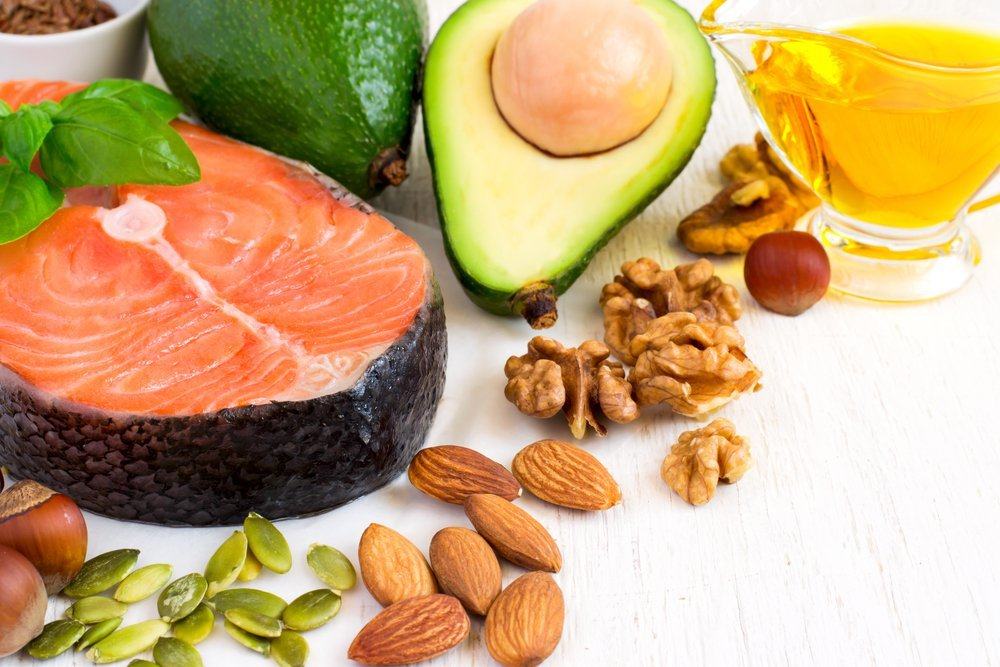Contents:
- Medical Video: Low Sodium Diet for Heart Disease: Bruce Simon's story
- The principle of a heart diet
- Then, what should be consumed by patients who have heart disease?
- 1. Enough energy
- 2. Protein as needed
- 3. Fat can still be consumed, but note the type
- 4. Vitamins and minerals
- 5. Limit salt
- 6. Enough fiber
- 7. Other foods that must be avoided
Medical Video: Low Sodium Diet for Heart Disease: Bruce Simon's story
Heart disease is the number one cause of high mortality rates in adults in the world. At least it is known that around 17.3 million people die per year due to cardiovascular disease. Various problems and disorders experienced by the heart and blood vessels are mostly caused by smoking habits, not doing regular exercise, and often eating unhealthy foods. Cardiovascular disease is not only a disorder that arises in the heart organs, but disorders that occur in blood vessels are also included in heart disease.
The principle of a heart diet
Having the right diet can help patients to restore and support heart treatment done. Food and drinks consumed by heart disease patients must of course be regulated. Heart disease arises because there have been several problems in the heart, which then cannot be treated properly and cause the heart to no longer function normally. Various heart diseases such as coronary heart disease, heart failure, and myocardial infarction are accumulations of heart problems that cannot be overcome.
A heart diet appears to support the treatment of patients with heart disease. The purpose of this diet is to:
- Providing adequate food and according to needs without aggravating the work of the heart.
- Lose weight if the patient has excess weight
- Prevent and eliminate edema or swelling caused by accumulation of salt or water in the body.
Then, what should be consumed by patients who have heart disease?
The following are the principles of a diet that heart patients must undergo:
1. Enough energy
Everyone needs energy to move, including patients with heart disease. The energy needed by people with disease must be adjusted to the adequacy of their energy. Energy sources are obtained from foods that contain high carbohydrates. The patient's carbohydrate needs are adjusted to the needs of around 55 to 65% of total calories. All carbohydrate sources may be consumed, except for gas and alcoholic foods such as sweet potatoes, cassava, cassava tape, and sticky tape.
2. Protein as needed
There is no difference in the amount of protein needed by people with heart disease with healthy people, which is around 0.8 gram / kg body weight. However, the recommended source of protein is a low-fat source of animal protein, namely non-processed beef, skinless chicken, fish, eggs (without egg yolk), low-fat milk, and skim milk. As for the recommended sources of vegetable protein for consumption such as soybeans and processed foods, and red beans. Avoid types of beans that have high fat, namely peanuts, cashews, and Bogor beans.
3. Fat can still be consumed, but note the type
Not that people with heart disease should not eat fatty foods at all, because actually almost every source of food - except vegetables and fruits - contains fat in it. So it is not possible to avoid fat, all you have to do is limit the fat content you eat. According to the Indonesian Dietetic Association, people with heart disease should be given 25-30% fat from the total calories needed in a day, with 10% from saturated fats and 10-15% from unsaturated fats. If the patient's total daily calorie needs are 2000 calories, then the fat that must be given is around 55 to 66 grams of fat.
While avoiding high cholesterol foods such as shellfish, shrimp, full cream milk, and various innards. This should be avoided, especially for patients who have dyslipidemia which is a high level of total fat in their body. For oil use, use corn oil, soybean oil, butter / margarine and all used in limited quantities, it is not recommended to use it for frying. While the use of palm oil and thick coconut milk should be avoided.
4. Vitamins and minerals
The main sources of vitamins and minerals are vegetables and fruits, where heart disease sufferers can consume all types of food sources. But what needs to be considered is to avoid fruits containing gas and alcohol such as ripe jackfruit and durian. So even for gas-containing vegetables, for example cabbage, cauliflower, radishes, mustard greens, and young jackfruit, should be avoided by people with heart disease. These foods contain gases that can make the patient become short of breath.
5. Limit salt
For patients who experience edema (swelling of the body due to fluid deposits) and high blood pressure, the recommended use of salt is 2-3 grams per day. Also pay attention to the sodium content in the food / drink you eat, because the maximum sodium you can consume is 1500 mg per day.
6. Enough fiber
Fiber needs for people with heart disease in a day is 25 grams. Source of fiber can be obtained from various types of vegetables, fruits, and wheat. For patients who are experiencing constipation or constipation the fiber needs will be even higher in one day.
7. Other foods that must be avoided
It is better not to eat processed foods and drinks that certainly contain a lot of sodium in them. In addition, people with heart disease are also not allowed to drink tea / strong coffee, soft drinks and alcoholic drinks. As for spices, it is also recommended to avoid kitchen spices that have a sharp taste like spicy and sour taste.
READ ALSO
- Symptoms of a Heart Attack Based on Age and Gender
- How to fix heart defects?
- Facts, Data and Statistics Regarding Heart Disease












